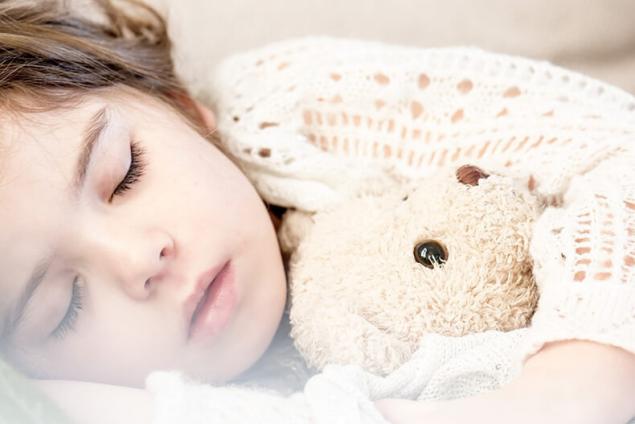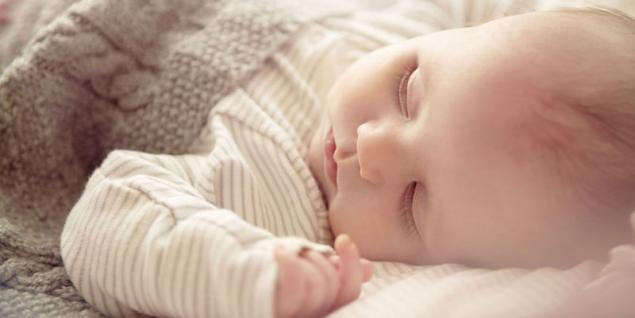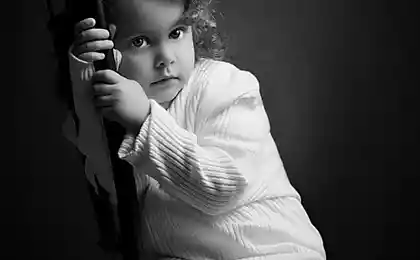198
Why do young children refuse to go to sleep?
Peter Gray is a professor of psychology from Boston College, the author of a textbook on psychology for universities. He is mainly interested in children’s natural learning and play activities at all ages.
The monsters under the bed are real
In our society, babies and young children are constantly protesting against going to bed. They come up with different reasons. They say that they are not tired, although in fact their fatigue is noticeable. They say that they are hungry or thirsty, that they need to tell a story (and then another one) – anything to buy time. They say that they are afraid of the dark and monsters under the bed or in the closet. Non-speaking babies who can’t yet describe their fears or try to negotiate just cry.

Why are they protesting so much? Many years ago, well-known behavioral psychologist John Watson actually argued that such behavior is not normal, it arises from the fact that parents too pamper their children.
Echoes of this view are still found in children's education books, they are usually advised to remain firm and not to give in to questions of going to bed. Experts say this is a battle of characters that you as a parent must win to avoid spoiling your child.
But there is clearly something missing in these expert interpretations. Why do young children test their parents’ willpower on this issue? They don't protest against toys, sunlight, or hugs (at least not normally). Why do they not want to go to sleep, because sleep is very useful for them and they need it?
The answer begins to emerge when we look away from the Western world and look at children in other regions. Sleeping scandals are unique to Western and related cultures. In other countries, young children sleep in the same room, and often in the same bed with one or more adults, so going to bed is not a protest.
Young children are protesting, apparently, not against falling asleep per se, but against being alone in bed, in the dark, under the cover of night. People from other countries are shocked by the Western custom of putting children to sleep in a separate room, often without their older siblings. Their reaction: "Poor kids!" Why are their parents so cruel? Hunter-gatherer cultures are most shocked, as they know all too well why young children do not want to be alone in the dark.
Just 10,000 years ago, we were all hunter-gatherers. We all lived in a world where every little one left alone at night was a bait for nocturnal predators. The monsters under the bed or in the closet were real, scouring the jungle and savannah, sniffing out prey near human settlements.
The grass hut did not serve as protection, it was close to an adult, and better to several at once. In the history of our species, children who were frightened and shouted to attract the attention of adults, being left alone at night, were more likely to survive and pass on their genes to future generations than those who serenely accepted their fate. In a hunter-gatherer society, only a lunatic or completely careless person would leave a young child alone at night, and another adult would come to his aid when he heard the slightest cry.
When your baby cries alone at night in his crib, he is not testing your will. He literally screams to survive. Your baby cries because genetically we are all hunter-gatherers, and your baby’s genes contain information that being alone in the dark is suicide.

This is an example of the concept of evolutionary contradictions. There is a contradiction between the environment of our evolutionary ancestors, in which our gene pool was formed, and the environment where we live now.
In the reality of our ancestors, a child left alone at night was in serious danger and could be eaten. Today, children are almost not threatened. In the days of our evolutionary ancestors, no sane parent—or grandparent, uncle, aunt, or any other member of the pack—would ever leave a young child to sleep alone.
If a child accidentally stayed too far away from adults in the dark of the night, his crying would immediately attract attention. These days, when there is no real danger, children’s fears seem irrational, so parents often believe that they contradict common sense and children should just learn to overcome them. Or they read from “experts” that the child is simply testing their willpower and behaving spoiled.
Thus,Parents fight their children instead of listening to them and their own instincts.They call for taking any crying toddler in their arms, keeping them nearby, offering them their care, rather than leaving them alone to “overcome.”
Also Read: Emotional Deafness of the Environment
How to Accept the Growing of a Son
What should we do about this evolutionary contradiction? There are two alternatives in this case. We can listen to the “experts” and engage in a long battle of characters, or we can follow the advice of our genes and come up with some suitable way for the child to sleep next to us.
When my son was young, I had just finished my studies, the choice was simple. We lived in a one-bedroom apartment, so we just didn’t have the opportunity to put it apart. Sometimes life is easier when you’re poor and just can’t afford an apartment or a house with extra rooms. published
By Peter Gray, translated by Irina Matsenko
P.S. And remember, just changing our consumption – together we change the world!
Source: alpha-parenting.ru/2013/11/08/pochemu-malenkie-deti-otkazyivayutsya-idti-spat-evolyutsionnoe-protivorechie/
The monsters under the bed are real
In our society, babies and young children are constantly protesting against going to bed. They come up with different reasons. They say that they are not tired, although in fact their fatigue is noticeable. They say that they are hungry or thirsty, that they need to tell a story (and then another one) – anything to buy time. They say that they are afraid of the dark and monsters under the bed or in the closet. Non-speaking babies who can’t yet describe their fears or try to negotiate just cry.

Why are they protesting so much? Many years ago, well-known behavioral psychologist John Watson actually argued that such behavior is not normal, it arises from the fact that parents too pamper their children.
Echoes of this view are still found in children's education books, they are usually advised to remain firm and not to give in to questions of going to bed. Experts say this is a battle of characters that you as a parent must win to avoid spoiling your child.
But there is clearly something missing in these expert interpretations. Why do young children test their parents’ willpower on this issue? They don't protest against toys, sunlight, or hugs (at least not normally). Why do they not want to go to sleep, because sleep is very useful for them and they need it?
The answer begins to emerge when we look away from the Western world and look at children in other regions. Sleeping scandals are unique to Western and related cultures. In other countries, young children sleep in the same room, and often in the same bed with one or more adults, so going to bed is not a protest.
Young children are protesting, apparently, not against falling asleep per se, but against being alone in bed, in the dark, under the cover of night. People from other countries are shocked by the Western custom of putting children to sleep in a separate room, often without their older siblings. Their reaction: "Poor kids!" Why are their parents so cruel? Hunter-gatherer cultures are most shocked, as they know all too well why young children do not want to be alone in the dark.
Just 10,000 years ago, we were all hunter-gatherers. We all lived in a world where every little one left alone at night was a bait for nocturnal predators. The monsters under the bed or in the closet were real, scouring the jungle and savannah, sniffing out prey near human settlements.
The grass hut did not serve as protection, it was close to an adult, and better to several at once. In the history of our species, children who were frightened and shouted to attract the attention of adults, being left alone at night, were more likely to survive and pass on their genes to future generations than those who serenely accepted their fate. In a hunter-gatherer society, only a lunatic or completely careless person would leave a young child alone at night, and another adult would come to his aid when he heard the slightest cry.
When your baby cries alone at night in his crib, he is not testing your will. He literally screams to survive. Your baby cries because genetically we are all hunter-gatherers, and your baby’s genes contain information that being alone in the dark is suicide.

This is an example of the concept of evolutionary contradictions. There is a contradiction between the environment of our evolutionary ancestors, in which our gene pool was formed, and the environment where we live now.
In the reality of our ancestors, a child left alone at night was in serious danger and could be eaten. Today, children are almost not threatened. In the days of our evolutionary ancestors, no sane parent—or grandparent, uncle, aunt, or any other member of the pack—would ever leave a young child to sleep alone.
If a child accidentally stayed too far away from adults in the dark of the night, his crying would immediately attract attention. These days, when there is no real danger, children’s fears seem irrational, so parents often believe that they contradict common sense and children should just learn to overcome them. Or they read from “experts” that the child is simply testing their willpower and behaving spoiled.
Thus,Parents fight their children instead of listening to them and their own instincts.They call for taking any crying toddler in their arms, keeping them nearby, offering them their care, rather than leaving them alone to “overcome.”
Also Read: Emotional Deafness of the Environment
How to Accept the Growing of a Son
What should we do about this evolutionary contradiction? There are two alternatives in this case. We can listen to the “experts” and engage in a long battle of characters, or we can follow the advice of our genes and come up with some suitable way for the child to sleep next to us.
When my son was young, I had just finished my studies, the choice was simple. We lived in a one-bedroom apartment, so we just didn’t have the opportunity to put it apart. Sometimes life is easier when you’re poor and just can’t afford an apartment or a house with extra rooms. published
By Peter Gray, translated by Irina Matsenko
P.S. And remember, just changing our consumption – together we change the world!
Source: alpha-parenting.ru/2013/11/08/pochemu-malenkie-deti-otkazyivayutsya-idti-spat-evolyutsionnoe-protivorechie/























